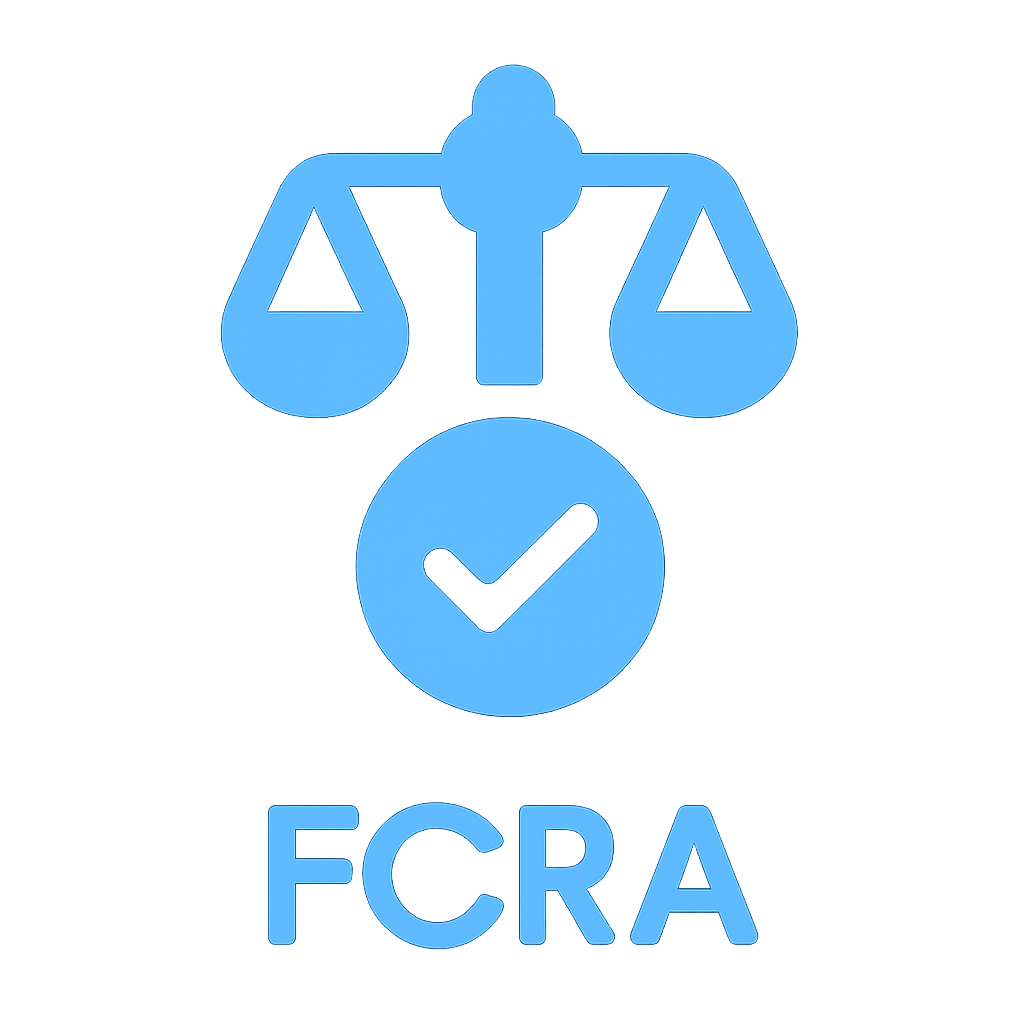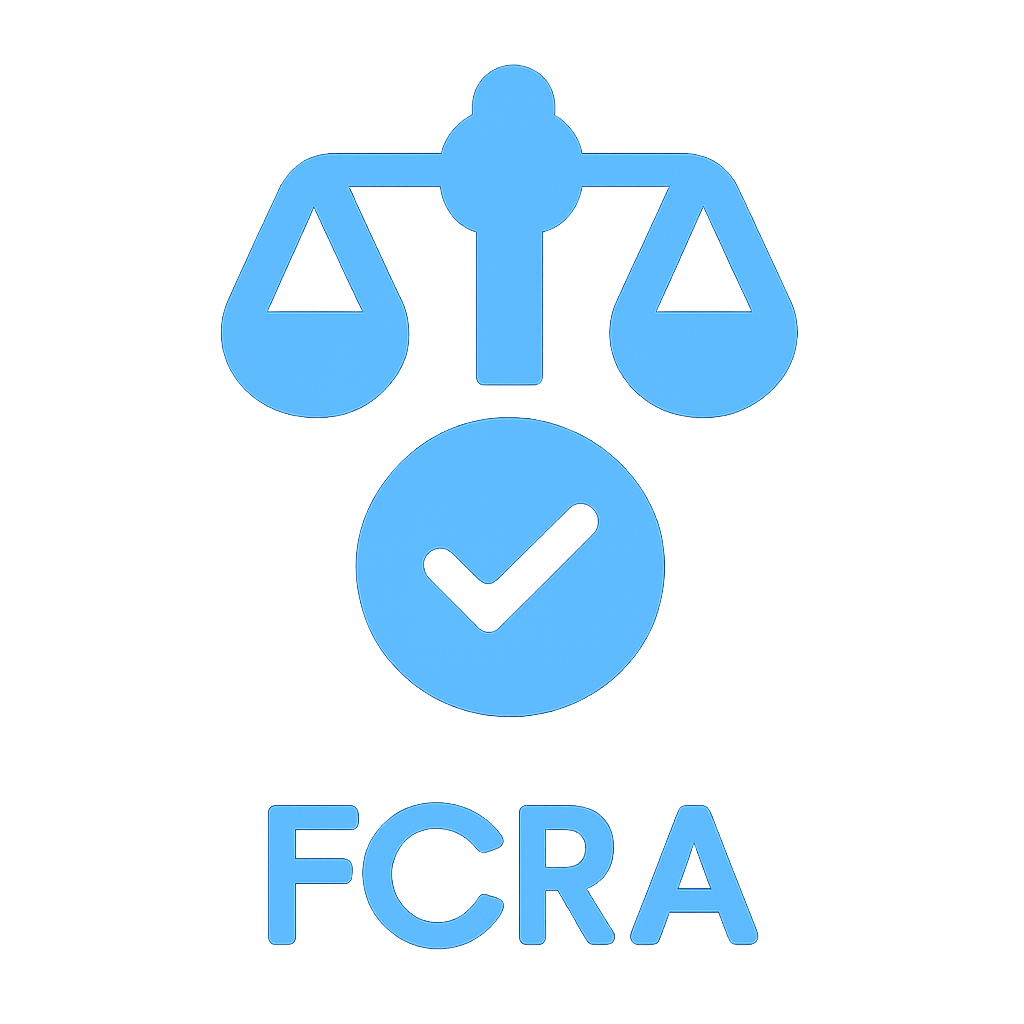How to Dispute a False Checkr Background Check
A failed background check can feel like a brick wall between you and a job, housing, or financial opportunity - especially when the report is wrong. If your Checkr background check contains errors, you have the legal right to correct the record under the Fair Credit Reporting Act (FCRA). This guide will walk you through the Checkr dispute process, explain your protections under the FCRA, and help you understand your legal remedies if Checkr fails to fix the mistake.
An inaccurate background check can be more than just a denial; it can be a violation of your rights that entitles you to compensation. With the right legal support, you can not only get the error corrected but also recover lost wages and damages.
How to File a Checkr Dispute: Step-by-Step
Filing a Checkr dispute is a critical first step to correcting errors on your report and getting back to work. Under the Fair Credit Reporting Act (FCRA), you have the right to a free reinvestigation of any disputed information. Here is a step-by-step guide to the process:
Request a Copy of Your Report:
As soon as you are notified of an adverse action (like a job denial), request a copy of your full Checkr report from the company.
Identify the Errors:
Carefully review every detail of the report for inaccuracies. Look for things like a wrong name, birthdate, or Social Security number. Check for incorrect criminal records, such as expunged charges that were reported anyway.
Gather Your Evidence:
Collect any documents that can prove the error. This can include court records, police reports, or official correspondence showing that a charge was dismissed or that a different person’s information was incorrectly linked to you.
Submit Your Dispute to Checkr:
File a formal dispute directly with Checkr, either online through their applicant portal or in writing. Clearly state what information is incorrect and include all of your supporting evidence.
Follow Up:
Checkr has a legal obligation to investigate your dispute within 30 days. It is crucial to follow up and ensure they are moving forward with a full investigation. If Checkr fails to fix the error, it may be a violation of the FCRA, and you may have the right to file a lawsuit.
What If Checkr Ignores or Mishandles Your Dispute?
When you file a formal dispute with Checkr, they have a legal obligation under the FCRA to conduct a full reinvestigation within 30 days. However, if Checkr ignores your dispute or mishandles it by failing to correct the inaccurate information, it is considered a violation of federal law. This is a critical point in the process because it often strengthens your case for a lawsuit.
A failed or ignored dispute provides clear evidence that Checkr did not follow reasonable procedures to ensure the accuracy of your report. In these situations, your best course of action is to consult with an FCRA attorney. They can help you file a formal lawsuit to hold the company accountable, correct the record, and recover financial compensation for the harm caused by their error.
Your Legal Rights Under the Fair Credit Reporting Act
The FCRA is a powerful federal law that protects consumers from inaccurate and unfair background reporting. It gives you several critical rights designed to ensure the integrity of your personal information, including:
The Right to Access Your Report: You have the right to request and receive a free copy of your background report from any consumer reporting agency, including Checkr.
The Right to Dispute Inaccurate Information: If you find any false, outdated, or misleading information, you have the right to file a formal dispute and have it reinvestigated.
The Right to a Reinvestigation: Checkr is legally required to conduct a reinvestigation of your dispute within 30 days and correct any errors found.
The Right to Sue for Damages: If Checkr fails to handle your dispute properly, ignores it, or continues to report inaccurate information, you have the right to sue for damages, including lost wages and attorney’s fees.
A key part of the FCRA is the standard of "maximum possible accuracy." This means Checkr must maintain reasonable procedures to ensure their reports are as accurate as they can be. If they fail to meet this standard, they can be held legally liable.
When You Can Sue Checkr Without Even Filing a Dispute?
While you typically need to file a formal dispute before you can sue Checkr, there are exceptions. In some cases, a company’s violation of the Fair Credit Reporting Act (FCRA) is so clear and egregious that a lawsuit is your best option from the start.
Failure to Provide Correct Disposition: A common violation is when Checkr reports a criminal charge without including the final disposition, such as "dismissed" or "expunged." This omission can be considered a direct violation of their duty to ensure "maximum possible accuracy."
Mixing Up Records: If your background check clearly contains records that belong to another person—a so-called "mixed file"—some courts have ruled that this is such a clear violation of the FCRA that a lawsuit is justified without a prior dispute.
Willful Violations: If you can prove that Checkr's actions were willful and not just a simple mistake, you may not need to file a dispute first.
Even when these conditions are met, it is crucial to consult an FCRA attorney to determine the best course of action. They can advise you on whether your case is strong enough to bypass the dispute process and file a lawsuit directly to recover damages.
Is there an error on your Checkr background check? Contact us!
Suing Checkr In Federal Court: What You Need to Know
What Compensation Can You Get by Suing Checkr?
Suing Checkr in federal court can provide significant financial recovery for consumers who have been harmed by inaccurate background reports. When you win a lawsuit, you can be compensated for several types of damages:
Lost Wages: You are entitled to recover any income you lost as a direct result of the inaccurate report, including a job offer that was revoked or a missed opportunity for a promotion.
Emotional Distress: The law also allows for compensation for the emotional distress, anxiety, and humiliation caused by the incorrect report.
Statutory Damages: The FCRA provides for statutory damages of up to $1,000 per violation, which can be awarded even if you can't prove a specific financial loss.
Punitive Damages: In cases where Checkr's violation was willful or particularly reckless, a court may award punitive damages to punish the company and deter future misconduct.
Attorney’s Fees: One of the most important aspects of the FCRA is its fee-shifting provision. If you win your case, Checkr is responsible for paying your legal fees and court costs, which ensures that you can pursue justice without having to pay out of pocket.
Disputing vs. Suing Checkr: What You Need to Know
While a Checkr dispute and a lawsuit both aim to correct an inaccurate background report, they are two very different legal processes. Understanding the distinction is crucial for getting the right outcome.
Filing a Dispute
This is the required first step for most consumers. A dispute is a formal request to Checkr to correct or remove inaccurate information.
Purpose: To get the incorrect information off your report.
Process: You submit your dispute directly to Checkr, either online or in writing, along with your evidence. Checkr is required by the FCRA to investigate within 30 days.
Outcome: If successful, the information is corrected, and your report is updated.
Filing a Lawsuit
A lawsuit is a formal legal action filed in federal court. It is often the next step when a dispute is mishandled.
Purpose: To recover damages and hold Checkr accountable for their legal violations.
Process: An FCRA attorney files a complaint on your behalf in federal court.
Outcome: A successful lawsuit can lead to financial compensation for lost wages and emotional distress. You may also be awarded statutory and punitive damages. The FCRA requires Checkr to pay your legal fees if you win, so there are no out-of-pocket costs to you.
How Much Does It Cost to Hire an FCRA Attorney?
The cost to hire an FCRA attorney for a Checkr lawsuit is structured to make legal representation accessible to everyone, regardless of their financial situation. Most reputable FCRA law firms, including our firm, operate on a contingency fee basis. This means you will not pay any upfront costs or out-of-pocket expenses for our legal services.
We only get paid if we win your case, either through a negotiated settlement or a favorable verdict at trial.
This fee structure is made possible by a powerful provision within the Fair Credit Reporting Act (FCRA). The law includes a fee-shifting provision (15 U.S.C. § 1681n and § 1681o), which holds the defendant company—in this case, Checkr—responsible for paying your legal fees and court costs when you win.
This ensures that you can pursue justice and recover damages for an inaccurate report without the financial burden of litigation. This approach not only protects consumers but also provides a strong incentive for companies like Checkr to comply with the law.
Why You May Want to Sue Checkr to Fix Your Report for Good
When an inaccurate Checkr background check costs you a job or financial opportunity, it can feel like a dead end. While filing a dispute can get the error corrected on your report, it often fails to address the underlying problem: the original source of the misinformation remains uncorrected.
This means the same inaccurate data could appear on a future report from another background check company.
Filing a lawsuit is a powerful legal step that forces Checkr to not only correct their mistake but also provide compensation for the harm caused. A lawsuit is about more than just a corrected report; it is about recovering lost wages from the job you were denied, getting compensated for the emotional distress caused by the error, and holding a company accountable for its legal violations. Ultimately, suing Checkr is a necessary step to get the justice you deserve and prevent the same mistake from harming someone else.
Beyond personal recovery, a lawsuit sends a strong message to Checkr and other consumer reporting agencies that they must comply with federal law.
By taking a stand, you are helping to enforce the Fair Credit Reporting Act (FCRA) and protect other consumers from facing similar hardships. Your lawsuit can contribute to a legal precedent that forces these companies to be more diligent in their reporting, ensuring that the information they provide is as accurate as possible.
Have You Been Affected By a Background Check Error?
Contact Us - Our Legal Support Is Free!















